Former International Cricket Council’s (ICC) head of legal David Becker has issued a critical assessment of the Social Justice and Nation Building process conducted by the Ombudsman, Advocate Dumisa Ntsebeza SC. He also represents current CSA director of cricket Graeme Smith.
Becker and several, unnamed lawyers involved, have called the process and the report flawed, and questioned whether CSA can actually implement any of the “tentative” findings and recommendations contained therein.
The 235-page final report was submitted to the CSA board by the Ombudsman on 10 December. It was deeply critical of CSA and senior employees in that it claimed they engaged in prejudicial behaviour.
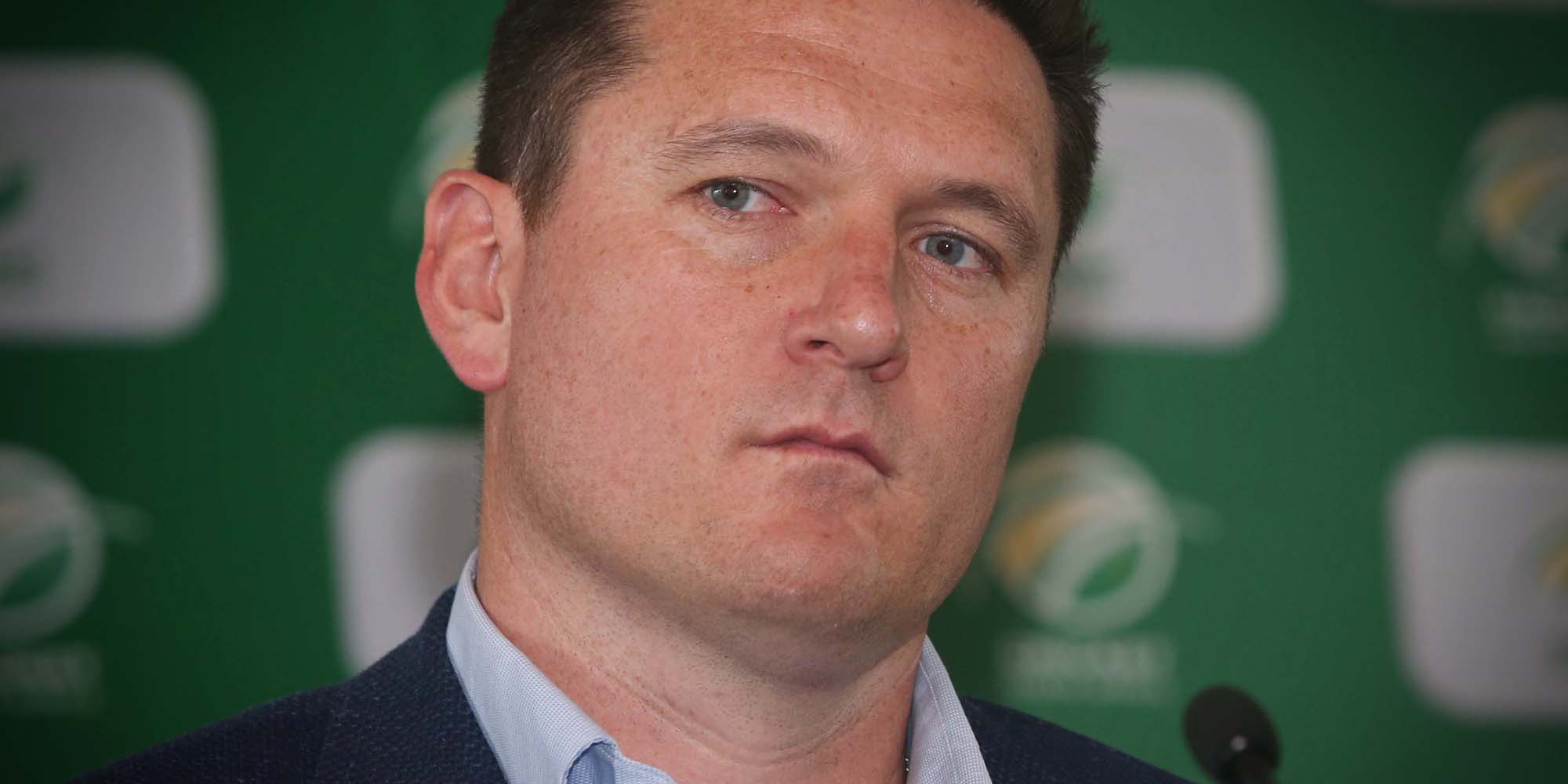 Cricket South Africa Director of Cricket Graeme Smith. (Photo: Bertram Malgas / Gallo Images)
Cricket South Africa Director of Cricket Graeme Smith. (Photo: Bertram Malgas / Gallo Images)
It determines that CSA, as well as current CSA director of cricket Graeme Smith and Proteas head coach Mark Boucher, as well as former star batter AB de Villiers, engaged in prejudicial conduct.
But in an 18-page letter sent to CSA on behalf of several of the respondents, the impartiality, independence and due process of the SJN – which cost CSA R7.5-million over six months – has been called into question.
“The conclusion that the findings made in the report are ‘tentative’ is concerning. Some of these ‘findings’ are very far-reaching and significant,” the letter stated.
“Respectfully, how can a finding of racism, for example, be ‘tentative’? Either it is a finding, or it is not a finding. If it is tentative (and if further work is required, as suggested by the Ombudsman in paragraphs 439 and 442 of his report in order to reach ‘appropriate conclusions’), this report ought not to be accepted in its current form.”
In a separate statement, Becker questions the dual role that lawyers Sandile July and Sandile Tom played as both legal advisors to the Ombud and then, as signatories to the complainants’ Heads of Argument, legal submissions presented on behalf of a group of complainants at the closing of evidence.
"Questions have been rightfully asked about the dual role that the lawyers for the Ombudsman played, as it turned out that not only did they advise the Ombud, but at the same time drafted and submitted Heads of Argument on behalf of the complainants,” Becker said.
“The apparent conflict is even more glaring when one considers that more than 250 paragraphs of the complainant’s Heads of Argument have been simply cut and pasted word for word, directly into the Ombudsman’s report. This arguably undermines the independence of the Ombudsman and brings into question the integrity of the report and the process.”
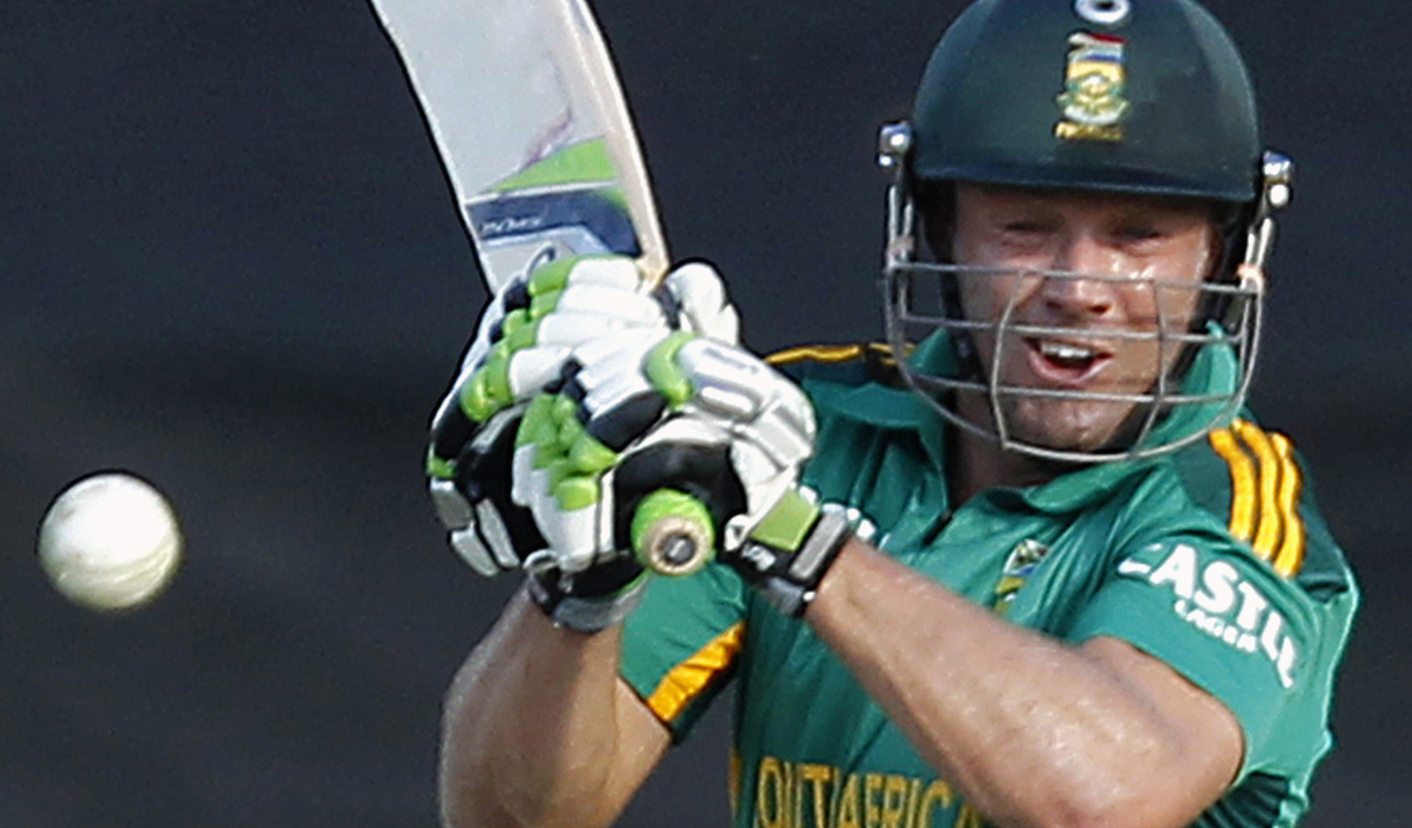 South Africa's AB de Villiers plays a shot bowled by Pakistan's Wahab Riaz during their final one-day international (ODI) cricket match in Benoni March 24, 2013. (REUTERS/Siphiwe Sibeko)
South Africa's AB de Villiers plays a shot bowled by Pakistan's Wahab Riaz during their final one-day international (ODI) cricket match in Benoni March 24, 2013. (REUTERS/Siphiwe Sibeko)
Accusations of racial prejudice
Smith and De Villiers are accused of racist action in terms of team selection, while Boucher was named by former teammate Paul Adams as one of several players who called him a “brown shit” in an altered version of a popular song during a team meeting. Boucher admitted he was involved in a responding affidavit and apologised.
But the SJN report was critical of the apology. According to the report, Boucher showed “a lack of sensitivity and understanding of the racist undertones.
“Because of the history of this country, the gravity of calling people nicknames with racial connotations will not weigh the same for black people. It is disappointing that Mr Boucher seems to not appreciate this salient common understanding.”
Smith, along with the Proteas selection panel in 2012, is accused of barring former wicketkeeper Thami Tsolekile’s elevation to the Test team. The implication is that Smith, as captain, blocked Tsolekile’s path because he was black.
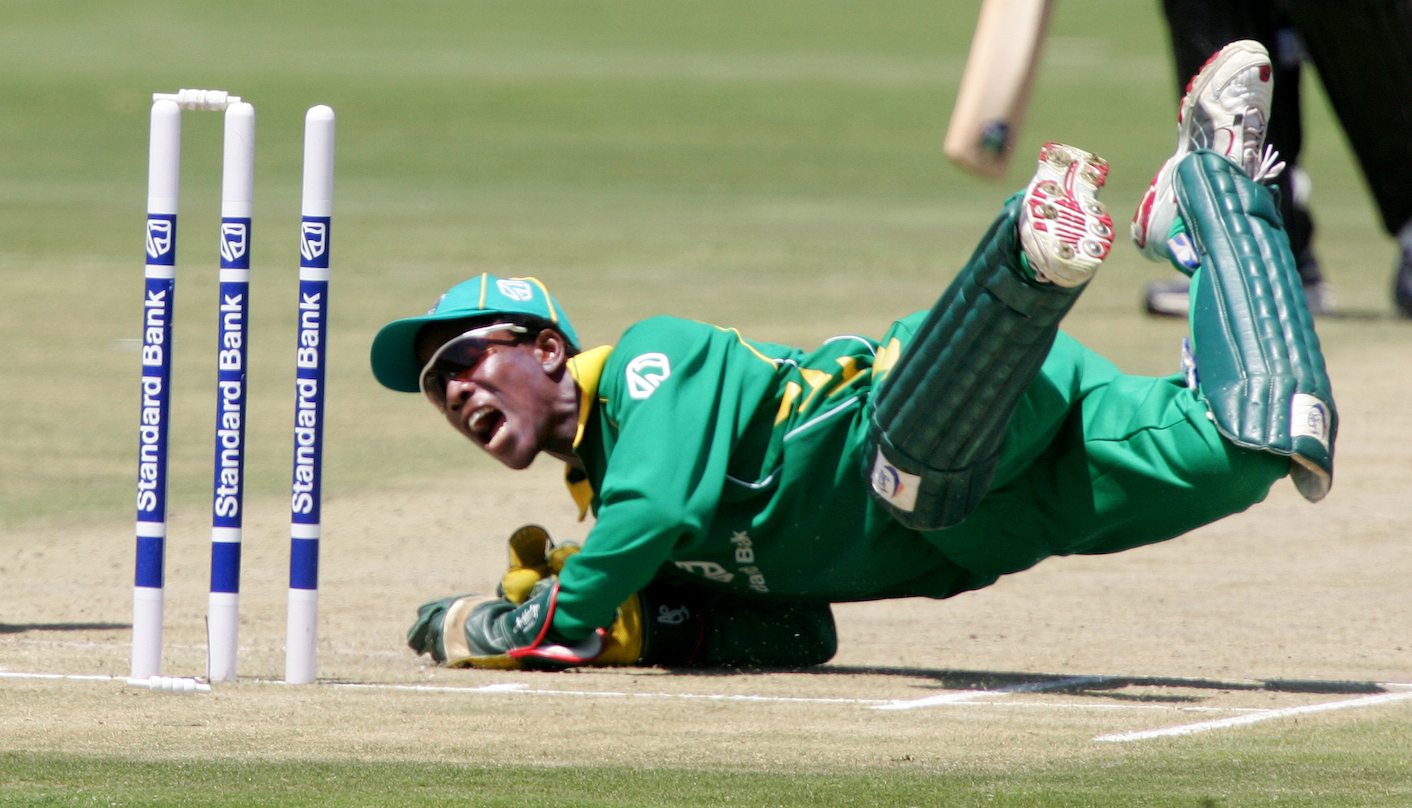 South Africa A wicketkeeper Thami Tsolekile celebrates as he stumps New Zealand batsman Jacob Oram during their cricket match in Potchefstroom October 16, 2005. (REUTERS/Mike Hutchings)
South Africa A wicketkeeper Thami Tsolekile celebrates as he stumps New Zealand batsman Jacob Oram during their cricket match in Potchefstroom October 16, 2005. (REUTERS/Mike Hutchings)
“It is hard to exclude Mr Tsolekile's race as having been the main reason why he did not succeed in the Proteas,” the report says. “CSA, Mr Graeme Smith and some selectors at the time really failed Mr Tsolekile and many black players of his time in many ways.
“The decision of the panel was totally irrational and showed clear signs of systemic racism.”
In another incident, according to former selector Hussein Manack’s testimony at the SJN, De Villiers is accused of blocking black batter Khaya Zondo’s path to the Proteas’ team.
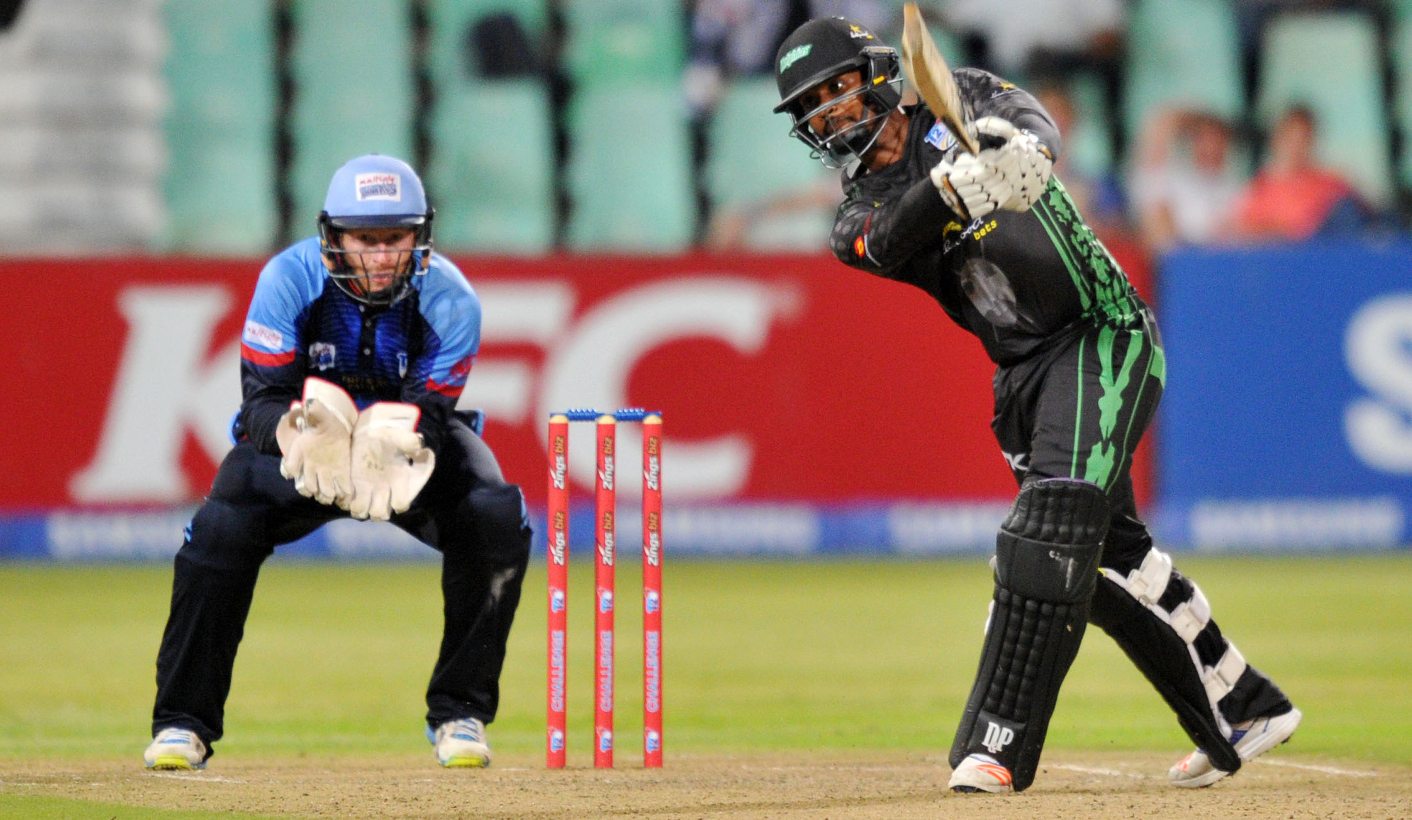 Khaya Zondo of the Dolphins during the 2016 CSA T20 Challenge match between Hollywoodbets Dolphins and Multiply Titans at Kingsmead Stadium (Photo Supplied)
Khaya Zondo of the Dolphins during the 2016 CSA T20 Challenge match between Hollywoodbets Dolphins and Multiply Titans at Kingsmead Stadium (Photo Supplied)
De Villiers, as One-Day International captain, apparently insisted that Dean Elgar was selected over Zondo. De Villiers went over the head of then convenor of selectors Linda Zondi to CEO Haroon Lorgat to ensure that decision was taken. Manack exonerated himself, saying he was “pressured” into picking Elgar.
The report, relating to this incident, says that De Villiers went over Zondi’s head: “Just to ensure that a black player was not placed in a position which he deemed as requiring greater experience. The only reasonable conclusion is that Mr de Villiers unfairly discriminated against Mr Zondo on racial grounds.”
These are both serious allegations, which Smith and De Villiers were not able to challenge in the process.
Material concerns about SJN
Becker fired back at the allegations. Becker said he and several other lawyers representing various respondents had “raised material concerns about the integrity of the process with CSA”.
“The SJN process was undoubtably an important process for South African cricket,” Becker said in a statement. “However, CSA is going to have to consider a number of fundamental flaws in the Ombud’s process, which have been raised by several respondents.
“For instance, how do you make far-reaching and public findings of racial prejudice against certain people and in the same breath say that they are ‘tentative’, as the Ombudsman has done?
“How is CSA expected to implement those findings when the Ombudsman has said, by his own admission, that he ‘cannot make definitive findings in an instance where the evidence of both the so-called victims and the alleged perpetrators was not tested’?
“Why wasn’t the evidence properly tested? The Ombudsman had the opportunity to cross-examine the witnesses under the Terms of Reference and didn’t take that opportunity,” said Becker. “It was his process.”
Concerns were also raised about lack of due process. “Important questions will need to be asked as to why certain respondents were not properly informed of the allegations against them, as required,” Becker said.
“It appears that several people against whom findings of racism have been made were not properly notified of the allegations against them by the Office of the Ombudsman,” said Becker. “If so, this is very serious and the findings against them will ultimately need to be withdrawn or set aside.”
De Villiers also dismissed the allegations in a statement shared by his agent. “I wholly supported the aims of Cricket South Africa's Social Justice and Nation Building process, to ensure equal opportunities in our game,” De Villiers said.
“However, throughout my career, I expressed honest cricketing opinions only ever based on what I believed was best for the team, never based on anyone's race. That's the fact.”
The final report is also disappointing in the way it deals with accusation of bias against the South African Cricketers’ Association (Saca). Several complainants claimed that Saca did not serve their best interests, to which Saca responded in an exhaustive 250-page affidavit. Yet in the final SJN report, Saca’s submissions are dealt with in a few lines.
Smith’s and Boucher’s roles in CSA structure
The final SJN report is also critical of the process that led to Smith’s appointment as CSA director of cricket in late 2019, and of Boucher’s subsequent appointment as Proteas head coach by Smith.
The report says there were “procedural flaws” in Smith’s appointment, who in his role as director of cricket, then appointed Boucher as head coach.
Smith was headhunted for the role, which is not unusual for such senior positions. Former president Chris Nenzani, said in an affidavit that the board had approved both the Smith and Boucher appointments.
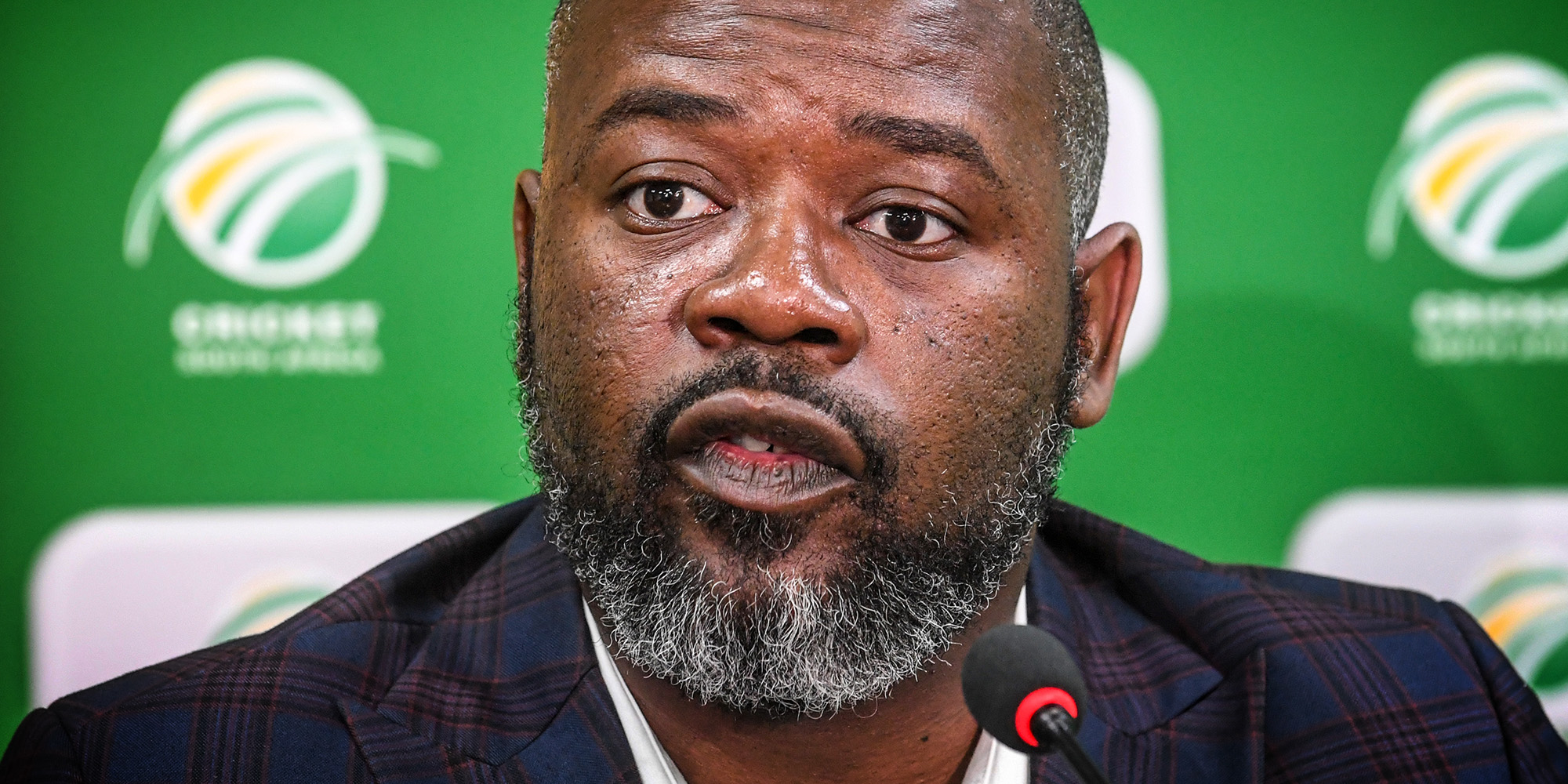 Thabang Moroe (CEO) of CSA during the Cricket SA press conference at CSA Offices on August 06, 2019 in Johannesburg, South Africa. (Photo: Sydney Seshibedi/Gallo Images)
Thabang Moroe (CEO) of CSA during the Cricket SA press conference at CSA Offices on August 06, 2019 in Johannesburg, South Africa. (Photo: Sydney Seshibedi/Gallo Images)
The SJN report also accuses Smith of racist behaviour because he refused to work with then-CEO Thabang Moroe. Moroe was subsequently dismissed and found not to have acted in the best interest of CSA, as detailed in the Fundudzi forensic report .
Becker challenges the conclusion that Smith’s opposition to Moroe was racially motivated.
“Some of the findings are entirely questionable and without any basis,” said Becker in his statement. “For example, in finding that Smith’s refusal to work under Moroe ‘evinces his racial bias against black leadership at CSA’, the Ombudsman simply ignores the fact that Smith has worked quite happily and successfully under the current CSA Acting CEO Pholetsi Moseki for the last year.
“He has also worked collaboratively with three black CSA presidents since being appointed in December 2019.
“As regards his appointment, Smith did not appoint himself. The evidence clearly shows that his appointment was endorsed by the selection panel and approved by the entire CSA board, CSA president Chris Nenzani, CFO Pholetsi Moseki, the Acting CEO, HR Head Chantal Moon, and Legal Officer and Company Secretary Welsh Gwaza.”
Ntsebeza has requested that the office of the cricket ombudsman is made permanent, but that is unlikely if legal challenges keep coming.
CSA board chairman Lawson Naidoo said: “We look forward to the report and will engage with it and its recommendations, in order to assist in ensuring that we do indeed move the game of cricket onto a new and different trajectory. We are thus committed to considering the findings and recommendations with an open mind. We will look at the report objectively, having regard to our social justice obligations, and our duties as guardians of the game in the Republic of South Africa.” DM




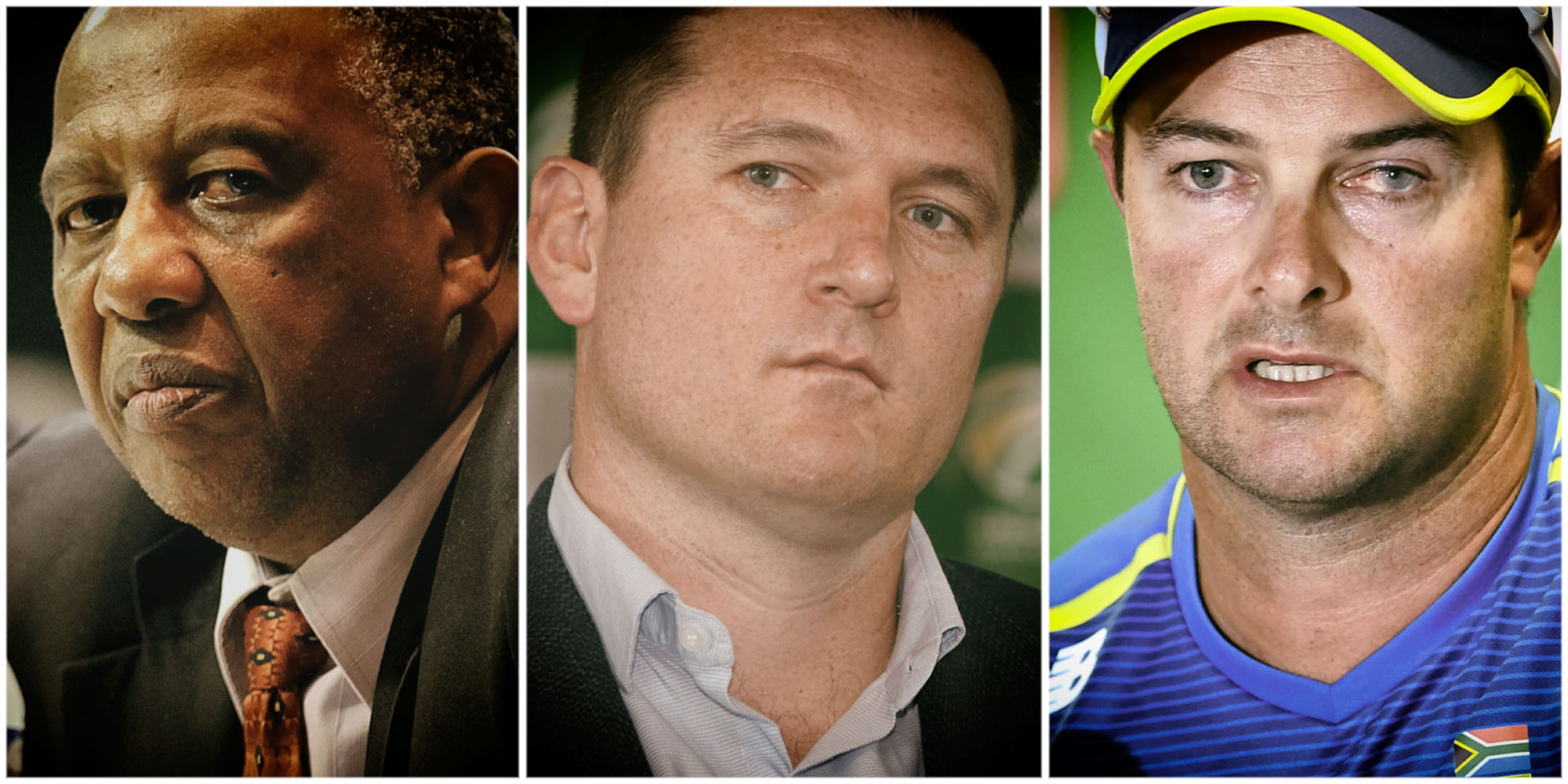 JOHANNESBURG, SOUTH AFRICA - AUGUST 06: Thabang Moroe (CEO) of CSA during the Cricket SA press conference at CSA Offices on August 06, 2019 in Johannesburg, South Africa. (Photo by Sydney Seshibedi/Gallo Images)
JOHANNESBURG, SOUTH AFRICA - AUGUST 06: Thabang Moroe (CEO) of CSA during the Cricket SA press conference at CSA Offices on August 06, 2019 in Johannesburg, South Africa. (Photo by Sydney Seshibedi/Gallo Images) 